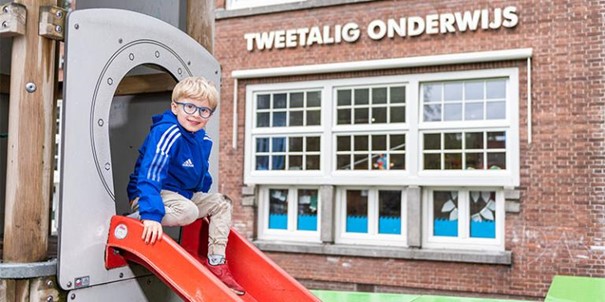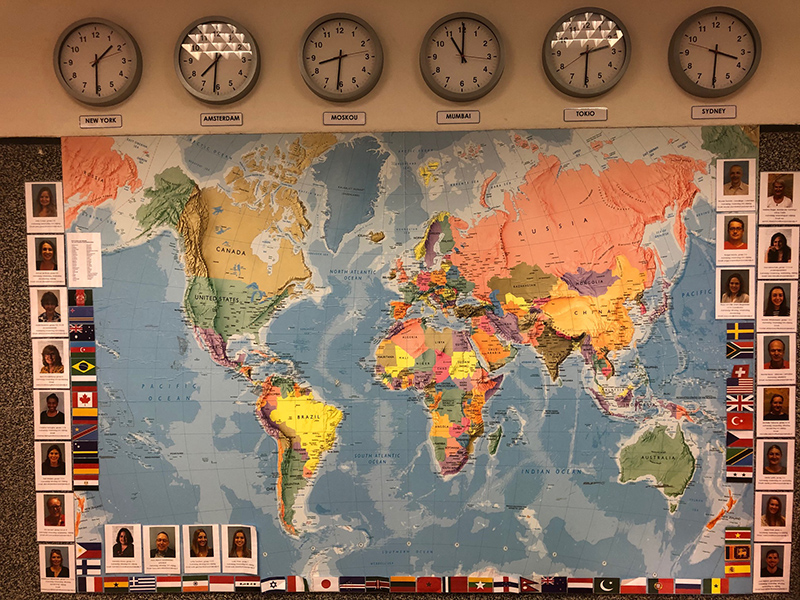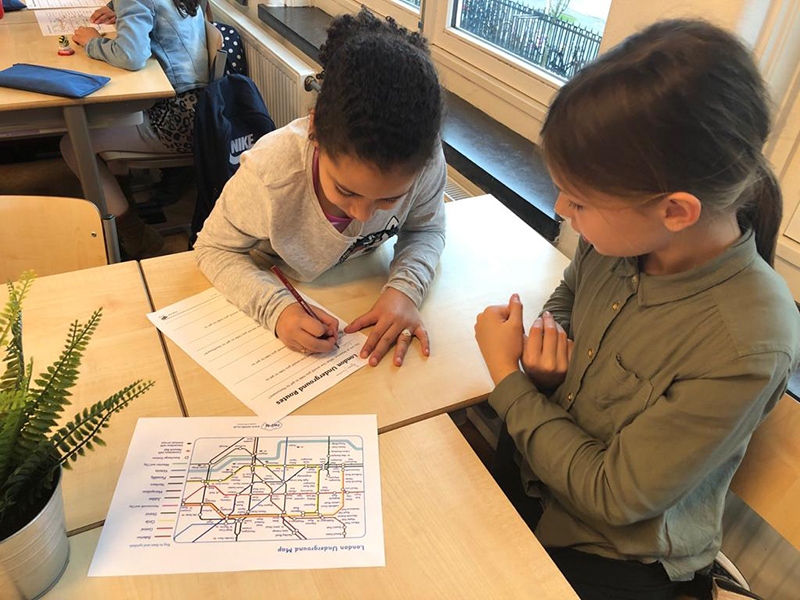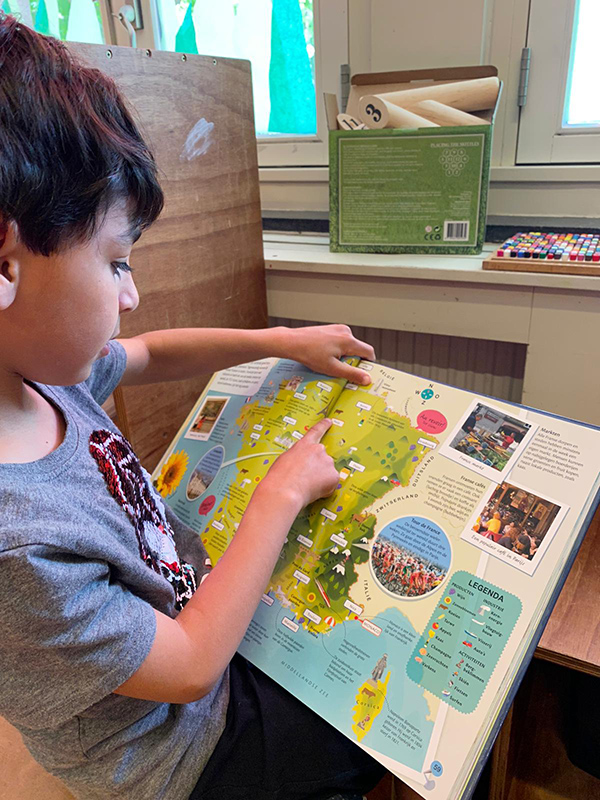Our bilingual education
Bilingual education at the Visserschool
Our school is the only primary school in Amsterdam that offers bilingual education with a minimum of 30% and a maximum of 50% of lessons taught in English. Core subjects are taught in Dutch while other subjects including social, motor and creative development are taught in English. Therefore, English learning is immersive - a difference to standard English lessons as taught at other primary schools. The bilingual education program was introduced at our school in 2014.
Bilingual primary education leads to better skills and increased self-confidence
After eight years of hard work at Visserschool, the scientific evidence has finally been provided: bilingual primary education (BPE) works! The BPE research conducted in the BPE pilot schools has demonstrated that expanded multilingual education has a positive effect on students' basic skills. Not only did they improve in the foreign language, but they also made significant progress in Dutch language and math skills compared to control groups. This result confirms that multilingual education does not have a negative impact on the acquisition of the Dutch language.
The importance of multilingual education was high on the agenda of the Second Chamber at the start of the pilot. It was crucial that the acquisition of the Dutch language was not neglected. However, the research results show that these concerns were unfounded.
Bilingual primary education has proven positive effects on students' skills and their self-confidence. It provides them with a solid foundation for language development and intercultural understanding, which is essential in our increasingly globalized world.
In response to the positive results, the former Minister of Primary and Secondary Education has decided to continue bilingual primary education. An amendment to the Organization Decree Primary Education (WPO) allows schools to use a second language alongside Dutch for up to half of the instructional time, instead of the current 15 percent. Schools can choose between English, French, or German as the second language.
For more information about the research on bilingual primary education and the positive results, click on the following link: Tweetalig primair onderwijs leidt tot betere vaardigheden en meer zelfvertrouwen | Nuffic.


Global awareness
Our bilingual education program is part of a larger movement aimed at an international mindset and global view of issues that concern us in the world. Our pupils are taught a global awareness curriculum in English. The students learn thematically about language, cultures, and countries to develop awareness of their own environment in relation to society with an international perspective.
The ultimate preparation for the future
We believe bilingual education is the ultimate preparation for the future of our students. It is fitting in this time in which more and more trainings are given in English, many internships take place abroad, and jobs across borders are becoming increasingly common. An early start to a second language pays off! Children learn to speak a language better and with a greater vocabulary when starting from the language sensitive ages 4-7 years. And it’s not just the English language that is better learned, pupils of bilingual education can develop more complex thinking patterns and have a better understanding of languages in general. Recent scientific research shows that Dutch language and numeracy skills are not deteriorating at TPO schools- a comforting thought!
“The Visserschool is a school with a very international and mixed demographic that, in addition to the core subjects, focuses on 21st century skills such as collaboration, presentation and internet use."
English as third language
An early start in the English language is also positive for children with a native language other than Dutch. English is taught at the same level for all kindergarten children whether they are originally Dutch speaking or not. So all pupils have the same starting position, which promotes confidence. In addition, children with a native language other than Dutch have already experienced learning a foreign language while here in The Netherlands. Learning a third language is therefore often easier. In that respect they are even ahead of their classmates.


Bilingual education in practice
In the lower groups, focus is on two language skills: listening and speaking. Lessons in the kindergarten groups 1 and 2 are taught through the basis of themes. Three days a week are Dutch days and two days are in English. We encourage students on these days to speak the language through various activities base around each theme. The purpose of this is for young students to learn English in a fun and playful way. We use modern English methods as a guideline for teaching. Students learn English words, sentences, songs, rhymes, and stories.
Group 3 also learns through themes based upon various teaching methods. Because we want to take enough time for students to learn to read and write in Dutch well, 85% of class time is in Dutch. The remaining 15% consists of lessons taught in English.
In the middle and upper years, four language skills (speaking, listening, reading and writing) are taught mainly with a fixed curriculum. The mornings are focused on Dutch core objectives along with the courses that go with them. Time in the afternoon is spent on global awareness through use of themes. There are also special English lessons based on modern English methods. In addition to these language skills, the Visserschool stimulates critical thinking, creativity, and collaboration: competencies that prepare our students for a successful future!
